True classical music has remained nearly uncorrupted by modern influence. It is a favorite of many individuals I have known in traditionalist circles, thanks in part to its healthy blend of culture, spirit, emotion, and liveliness. Unlike most modern music, the classical genre maintains Western heritage in its very notes.
Since I was a young child, I personally have listened to classical music. I grew up engaged in the styles and sounds of Bach, Mozart, and Vivaldi. For those of you who are newer listeners to what should be the most revered form of music in the Western World, I have put together a list of my top five favorite composers of all time.
5. Frédéric Chopin
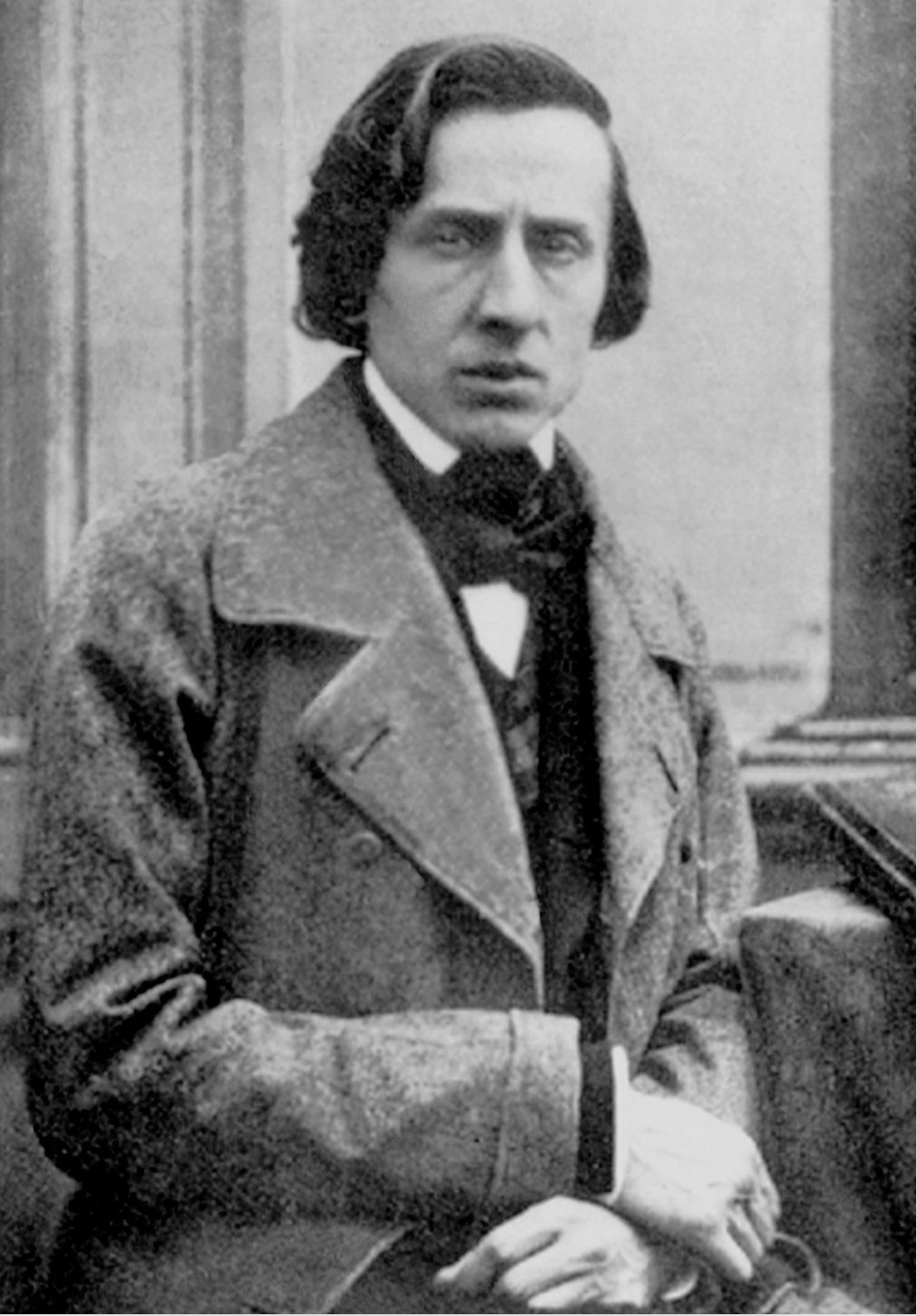
Chopin was a half Polish, half French composer who is quite famous for his nocturnes (short romantic compositions) more than anything. Through his somewhat tragic life, he managed to produce some of the greatest and most recognizable compositions in the entire field of classical music. Two examples would be “Tristesse” and “Op. 28 No. 4,” the latter of which has been sampled in many other tracks.
Chopin’s music is often darker in general feel than that of the others mentioned here, normally conveying emotions of sadness and grief. One could assume that this is mostly due to his short life in which he faced many struggles and unfortunate events. However, some examples contain more positive elements, such as “Nocturne Op. 9 No. 2.” Overall, Polish and French influences adorn much of his musical portfolio.
4. Franz Liszt
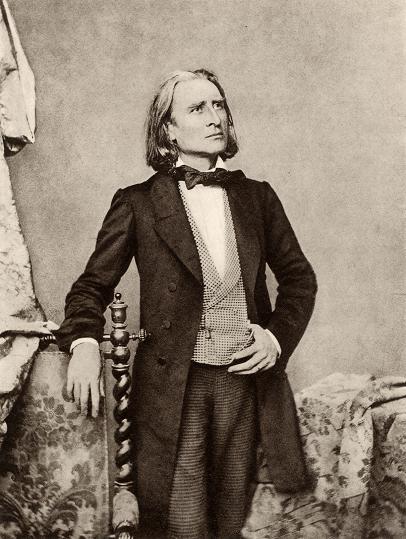
A musical genius from Hungary in the 1800s, Liszt produced some seldom heard (in modern times), but very intriguing pieces. I find him to have been a particularly skilled composer who was able to take on many fronts of the orchestra and piano. He was quite well known in his day for departing from the normative principles of music.
His music is normally lighthearted and inspiring, and is one of my personal favorites for listening to while I work or study. Influences in his music came from Slavic, Hungarian, German, and Romani music. Some of my personal favorites from his works are “Hungarian Rhapsody No. 2,” “Paganini Etude No. 6,” and “Sonata in B minor.”
3. Felix Mendelssohn
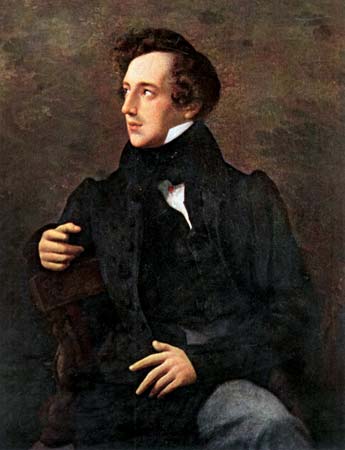
Mendelssohn was another one of the German greats who was recognized as an extremely talented individual from a young age. Hailed as the “Mozart of the 19th Century” by Schumann, his stance on the development of musical form was rigidly strict, in contrast to Liszt who was mentioned above.
Mendelssohn is famed for his many symphonies, of which I find particular enjoyment in listening to. Some of my favorites out of his symphonies are the “Symphony No. 1” and “Symphony No. 5.” This article could not be written, however, without mentioning Mendelssohn’s astounding piano works and chamber music, of which the “Variations Sérieuses” stand out. Mendelssohn also composed some extraordinary hymns which each deserve a good listen as well.
2. Wolfgang Amadeus Mozart
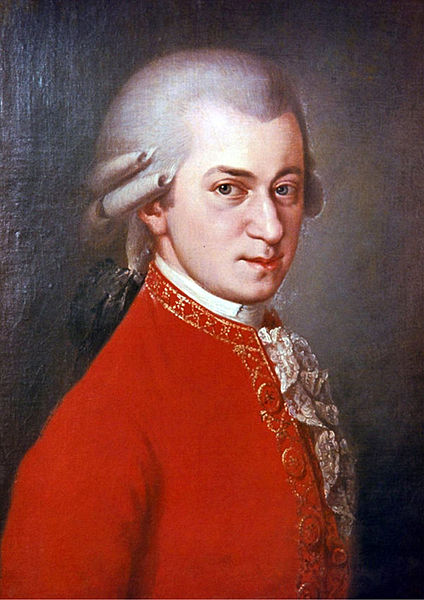
Mozart is one of the few names from classical music that virtually everyone knows. An Austrian prodigy who mastered the concerto, the opera, and the symphony to a degree that few others can boast of, his legacy stands strong today. Even as a man, Mozart displayed a pious faith in the Roman Catholic religion, and lived a moral life that anyone could admire. He did not profit all that greatly off his works, and the cause of his death has been often debated.
Pieces such as the “Magic Flute,” “Requiem,” and “Clarinet Concerto K. 622” display his talent at its most wonderful. Mozart’s music had wide influences to it, from Turkey to Italy, to Austria, and beyond. This musical genius’s works flow best when reading, studying, sleeping, or simply relaxing.
1. Ludwig Van Beethoven
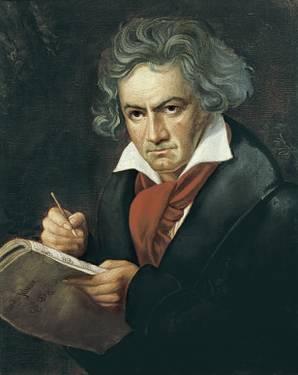
In my opinion, no musician can ever surpass the legacy of Beethoven. Born in Germany, but finding a residence in Austria, Beethoven’s skill in composing was matched only by the sheer perseverance seen in his life story. Barely able to hear on his own , and forced to survive some of the most turbulent events in European history, he still produced what are to me the greatest sonatas, symphonies, and concertos of all time.
“Für Elise” is one of the first works that comes to my mind when I think of Beethoven, with its calm and relaxing tone, and varying pace. “Moonlight Sonata” is yet another remarkable construction of Beethoven’s, in the same league as “Ode to Joy” and “Rage Over a Lost Penny.” I personally listen to Beethoven’s compositions constantly, and at many different times in the course of the day.
Honorable Mentions
There are many other composers who made exceptional musical works, but who I did not feel were at the absolute top of the charts. Some of these honorable mentions, who I considered placing in this list but eventually did not, include:
- Johann Sebastian Bach: An extremely skilled German composer famous for his harpsichord and organ works
- Antonio Vivaldi: An early Italian composer famous for his orchestral works like “The Four Seasons”
- Camille Saint-Saëns: A later French composer with a gift for comical and darker sounding pieces such as the “Danse Macabre”
- Pyotr Illich Tchaikovsky: A reasonably well-known Russian composer famous for his “1812 Overture” and ballets
- Johannes Brahms: Yet another German composer, hailing from Hamburg, famous for his many variations on the themes of other composers
I consider the above listed composers to be the greatest of all time. Their works are giants compared to those of modern musicians in any genre, and their legacies have not faded as time strolls on. I encourage the reader, even if they are not an avid listener of classical music, to try listening to some of the enthralling pieces developed by these artists of our past. Who knows, you may find that you enjoy some of them even more than I do.
Read More: 7 Pieces Of Beautiful Classical Music For Beginners
Respectfully disagree. Lizst was a piano virtuoso often described as the best ever but his compositions weren’t necessarily great.
Mozart and Mendelssohn lack power. Their music comes an era where symmetry in musical form was too important. Beethoven broke that mold.
Better composers were Rachmaninoff, Tchaikovsky, and Gustav Holst. They wrote music of epic power.
I’m also suprised Holst wasn’t mentioned. The Planets is exquisite.
The inspiration for starwars music.
and maybe even
The Black Hole
soundtrack
from 1979
Actually Anton Bruckner should be considered as the inspiration for Star Wars music. Bruckner was a second rate Brahms wannabe who is usually listed in the second tier of classical composers. Classically considered Star Wars music just isn’t that great.
There is another extremely obscure English composer from the last century who is stylistically similar to Holst – Peter Warlock.
This is the Norwegian Chamber Orchestra’s rendition of his Capriol Suite, it is the absolute best.
Good find there.
+1 for Tchaikovsky. 1812 overture is beauty & bad-ass with those canons
Agree about Tchaikovsky.
Falco disagrees..
liszt’s compositions were both great and innovative. In the 19th century his piano writing is only rivalled by Chopin (who arguably was more innovative). A lot of music critics are snobby about anything to romantic or showy and Liszt was both. Rachmaninov was too but Lizst was composing well before him. There so many great piano works, however as a performer some of these are transcriptions of other composers great works.
Holtz. Interesting. But if Bach wasn’t in the top 5, hell, the top 3, I’m not endorsing the list.
I will listen to baroque or classical music any day of the week and twice on Sunday but no genre better describes modern, degenerate women than hip hop.
Any classical music is light years ahead of what passes for music now… but you really should include Strauss in this. His waltzes are a thing of beauty.. Blue Danube, Tales From the Vienna Woods, and Voices of Spring would all be recognizable to folks here.
I am mostly a very uncultured, blue collar guy. But this music speaks to me.
Amazing the feminist harpies, globo-homos, and (((others))) can’t even leave this inoffensive article alone and are here downvoting already. Bottom feeders.
That’s what degenerates do. Reject any semblance of culture.
Yeah, music has pretty much died. All these damn Soundcloud rappers. But there’s still some good stuff out there.
I always take it as a mark of pride to get downvotes from them. Means I’m on the right track.
Though I do think a return to the pre upvote downvote days would be better. Joust with your mind, rather than win a popularity contest.
There were down votes cast for condolence posts when Roosh’s sister passed away. Down votes on condolences?! There’s a special category of asshole that lurks on this site.
There is still amazing music being made, you just have to search for it. Explosions in the Sky – Postcard From 1952
I’ve seen them live twice, they are even better than their recordings.
Explosions In The Sky – Catastrophe And The Cure
This is the definitive Explosions song, it shows how good their drummer Chris Hrasky really is.
#notMetal
Malcuzyinski’s interpretations of Chopin’s Waltzes are the best, IMO. I highly recommend them for dinner music.
There’s too much soy sauce on that list for my liking.
Real men listen to Rachmaninoff
Ahh, the “no true scottsman” fallacy. Classic.
Americans are slaves today.
When everything is illegal, you have nothing to lose by resisting.
When injustice becomes law, resistance becomes duty.
Ignoring the police state is difficult when it’s in your face everyday.
No one rules if no one obeys.
The war has started.
They can’t kill us all.
Wake up.
Think.
Pass the word.
Kind of generic list of “rockstars” within the classical genre. However, some of the finest amidst the clique. Kudos for even discussing the great masters on any level.
Tylman Susato – The Danserye
Michael Praetorius – Dances from Terpischore
George Frideric Handel- Wassermusik
Antonio Vivaldi – Lute Concerto in D
Hildegard von Bingen – Voices of Ascension (Medieval Polyphony)
I’ve always preferred the rich complexity of Renaissance composers, the music has such an ethereal quality to it.
It may not be for everybody, especially the “purists,” but Vivaldi Recomposed by Max Richter is one of the most spectacularly beautiful pieces of music I’ve ever heard.
I could add to this list ad nauseum, but, I can’t in good faith leave off the Russian composers.
Sergei Prokofiev – Lieutenant Kije Suite Op.60
Modest Mussorgsky – Pictures at an Exhibition
Nikolai Rimsky-Korsakov – Scheherazade Op.35
Aleksandr Borodin – Polovtsian Dances
Last one:
Edvard Grieg – The Death of Ase (Peer Gynt Suite)
This is the most beautiful piece of music ever composed by a human being. It is the feeling of melancholy and sorrow captured in music. Truly extraordinary.
Ye gods: I’m glad you listed this.
I listen to this exquisitely sad, powerful, and relatively brief composition at least once a week. It is that gorgeous.
The most beautiful waltz ever composed (even taking the Strauß dynasty into consideration).
Alexander Glazunow – Valse de Concert No.1 Op.47
–
Another one of his pieces for consideration
–
From the Middle Ages, Suite in E Maj. for orchestra Op.79
Kudos for Handel’s Water Music.
i always loved it
and Mussorgsky’s Pictures At An Exhibition
Paracelsus, Grieg should be on every classical list. The entire Peer Gynt suite is incredible.
No Vivaldi? wtf
Vivaldi was #2 in the “Honorable Mentions.”
one of my fav’s in the 4 Seasons
is the 3rd Movement in “Autumn”
starting at the 29:08 mark.
Don’t forget Arcangelo Corelli! I listen to him all the time.
Or Giuseppe Tartini!
Devil’s Trill Sonata
Classical music is for betas.
You should be listening to Future and Kendrik Lamar.
So alphas live in the ghetto?
Thought so.
You’re confusing correlation with causality.
And everyone should celebrate degenerate black culture??
lol the majority of rap’s fan base today is white soyboys who support BLM.
They wouldn’t dare emulate the violence in the lyrics, they just submit like cucks and let the blacks act tough and chauvinistic for them.
The list featured in the article provides a great starting point for the classical music novice. Of course, there’s a whole world of composers out there beyond those listed above. Once one is comfortable with listening to such music, I would suggest digging a little more deeply and checking out some of the following:
Gustav Mahler (Symphony No. 2 in C Minor “Resurrection”)
Jean Sibelius (“En Saga,” “Pohjola’s Daughter,” “Finlandia”)
Antonin Dvorak (Symphony No. 9 in E Minor “From the New World”)
Sergei Prokofiev (“Alexander Nevsky,’” “Lietenant Kije,” “Scythian Suite”)
Bela Bartok (Violin Concerto No. 2, Concerto for Orchestra)
Enjoy!
Finlandia is awesome
(((Mahler))) drives me crazy!
Also lookup Herbert von Karajan
Would also add Dvorak #8 in G Major as well. I like it better than #9. His Cello Concerto in B Minor is most well known of such works, but the Violin Concerto in A Minor and Piano Concerto in G Major are undiscovered gems.
I won’t listen to sad music, even when it’s classical.
so when that bit in Platoon is playing out where they all get cut down in slow mo what would you substitute for Samuel Barber’s Adagio? The Birdy Song?
Pathetic comment.
music is supposed to convey the full range of emotions. Different keys have different characters. Major keys tend to be “happier” than minor keys which are often used to evoke sad moods. If you do listen to classical music you’re going to have a hard time trying to dodge anything sad.
This is the only music a man should listen to.
Rock is for boomers and rap is for cucks and degenerates.
I give you credit for giving an honorable mention to Johann Sebastian Bach. Have you played any of his music? The level of difficulty and the complexity of it is astounding. Without doubt, he is the greatest composer of all times. He influenced Mozart and Beethoven. Matter of fact, it was Mendelssohn who bought him again to the attention of the audiences. Mendelssohn knew well his ingenuity to not let it go into oblivion. Roughly about one third of his music has reached us while the rest was sadly lost to unfortunate circumstances; including those who used his manuscripts to wrap some fish! As far as 20th Century Composers is concerned, no mention is made of Arnold Schoenberg. As part of the Second Viennese School, which included his students Alban Berg and Anton Webern, he wrote late-Romantic music better than the likes of Brahms, Tchaikovsky or Wagner. (Just listen to Gurrelieder, Pelleas ut Melisande and Verklarte Nacht) Then he wrote atonal works and finished it up with 12 tone music. He is perhaps the most misunderstood Composer of all times (He was born on a Friday the 13th and died on a Friday the 13th!). He influenced generations of composers to follow, including film scorers. Sorry, I could not keep quiet on this subject. I had to share my thoughts on this.
I’ve listened to some of the romantic Schoenberg (possibly Pelleas) but I can’t say I like it much. Sure he was a genius and great innovator but unlike you perhaps most people aren’t going find much in the way of catchy tunes in Schoeberg’s romantic music let alone his atonal / 12 tone stuff. Likewise Berg and (less so I think) Webern is quite listenable but appeals more to musicologists / the intellectually inclined etc. and otherwise lacks mass appeal
I agree with you on Bach. His music has multiple dimensions of complexity that open like a flower. That man like many others on the last was absolutely brilliant.
I know Mozart was a great but dislike most of his. It is just so courtly, like everything revolves around the king, or something.
BEETHOVEN!! His 9 Symphonies are a driven rollercoaster of passion and energy!!!
Why did nobody mentioned WAGNER here? Tristan and Isolde, Ride of the valkyries and many other pieces of opera. He did not just wrote the music, he also wrote the text of EVERY opera, he composed.
did mention of course. Sorry, it’s late in germany and english isn’t my mothertongue 😀
It’s a decent list. I don’t agree with all the sentiments expressed, but it’s good. However, for truly inspirational music that comes with beating in the heads of your local antifag collective, I will always turn to Wagner. If it’s good enough for Lt. Colonel Kilgore, it’s good enough for me.
Ralph Vaughan Williams :
The Lark Ascending
I would have listed Ralph Vaughn-Williams if you hadn’t!
Just for good measure…
Dame Joan Sutherland and Marilyn Horne’s version.
– And
Franz Lehár – Die lustige Witwe / Act 2 Vilja-Lied. Sung by the legendary coloratura soprano Dame Joan Sutherland.
Wow! I’m gonna be here awhile.
A coupla mentions that will
get you hooked on Classical:
Mascagni’s Intermezzo from
Cavalleria Rusticana and
Smetana’s Die Moldau.
-Tchaikovsky’s Finale
of 1812 Overture will
blow you away with
the cannons.
*oh yeah, speaking of
canons (not cannons):
Pachelbel’s Canon in D
-Roosh can publish
some playlists from
all the suggestions
pouring in. How
many of us were
into Classical
without anyone
even knowing it.
Good call on Smetana’s Die Moldau!
I can’t speak for anyone else, but I played clarinet and piano as a kid, this music was always a part of my life. Makes me regret not hanging in there and practicing enough to play these pieces:
“Honorable mention” to Bach?
Bach is probably the greatest musical genius in all of human history.
You might reconsider adding Bach to the short list if you read Hofstadter’s “Gödel, Escher, Bach.” It explains the mathematics woven into Bach’s compositions and if you’re at all inclined to math, computer science, etc., it gives you a whole new appreciation for the many layers of Bach’s compositions.
Also kudos to Jynxi for linking Delibes’ “Flower Duet.” That piece always makes me envision Europe as it should be–a place of great beauty and accomplishment, proud and distinct sub-cultures living side by side, a shining example of mankind at its best. Of course it was never actually like that, but a guy can dream.
In 200 years, no one will remember who Beyonce was.
All I ever need to know about classical music I learned from watching Buggs Bunny
Where are Shostakovich, Prokofiev and Paganini?
Khachaturian : Spartacus
Gayaneh’s Adagio
Wojciech Kilar
Dracula (Coppola) soundtrack
– Wojciech Kilar
Dracula soundtrack
Kilar is a spectacular contemporary composer, great call!
The Ninth Gate soundtrack is his magnum opus.
(((Mendelssohn))) converted to Christianity to get ahead. He really isn’t that great at all, especially when you leave out Wagner.
America’s Composer – Aaron Copland
Appalachian Spring: Variations on a Shaker Tune
And, the full Appalachian Spring Suite
Rodeo
Fanfare for the Common Man
Haydn gets short shrift here, but he put out an incredible amount of great music. He mentored Mozart and gave Beethoven a lesson or two in composition. Despite being short and ugly with a big nose, he had multiple mistresses and flings with women while dodging his wife – alpha to the core!
Really glad to see this piece here, as it’s been a while since non-modern music has been the subject of an article. (Non-modern, not “classical”, as that would be a common yet incorrect misnomer).
But you done fucked up when you subtitled it ‘the 5 greatest of all the greats’ or whatever that was. You know you’re just going to catch hell for serving up opinion as fact like that. Maybe next time think more about how to balance the need to grab your audience’s attention with the need to not bullshit them.
Hey other than that though, decent job. Didn’t pick anybody that sucked, or any shit-eating queers (to the best of my knowledge). Maybe coulda used the list of 5 format to mix up the eras, and areas, a little more too. Music did indeed exist before 1770, and continued to after 1870.
When i was a child i heard this peace- and it impressed me in some magical way. 25 years later i found tat it was 1st Arabesque by CLAUDE DEBUSSY performed on harp. Good for children (and adults too).
BACH. Violin Concertos. For a start listen to “Air”.
It’s a good list, especially if your target audience was people who have never listened to classical music. You are going to get people who are going to disagree with you but you probably didn’t write the list for them since most men could not name 10 classical composers. You certainly included the giants and while you may have left off some giants as well, if you wanted to limit the list to 10, these are 10 very good ones.
Load of weak , insipid, limp wristed crap , what about the Russians?
Rachmaninov, stravinsky, err, the other one
Wow, I really find it great to discuss and to find examples of real classic education nowadays. I remember my times when I was a kid and teen when my parents sent me to a piano teacher to learn about good music. Especially Beethoven, Liszt and Bach but also russian music like Mussorgsky were on the schedule. Such things could help the snowflakes to overcome their crybaby behavior.
Agree with the below, I’m far more of a Holst man myself. Epic and atmospheric.
You gotta respect his life story too, he wanted to fight in WWI but was too physically weak due to a congenital respiratory disease, so instead of wallowing in self-pity he channeled his angst into beautiful and epic score.